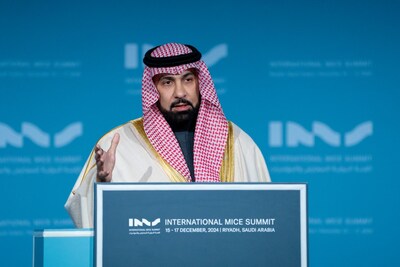RIYADH: The inaugural Space Debris Conference, themed “Towards Securing the Future of the Global Space Economy,” kicked off in Riyadh on Sunday.
In attendance was Abdullah Al-Swaha, minister of communications and information technology and chairman of the Saudi Space Agency, and Mohammed bin Saud Al-Tamimi, CEO of the Saudi Space Agency.
The two-day conference brought together more than 260 experts from over 50 countries, including CEOs and leaders from the space industry worldwide.
An exhibition showcasing local and international companies specializing in space technologies and sciences was also part of the event.
The conference, held in collaboration with the UN Office for Outer Space Affairs, aims to increase awareness of the challenges posed by space debris and ensure a prosperous and secure future for space exploration.
The Kingdom is looking to outline a comprehensive strategy to tackle the challenges arising from space debris, focusing on legislation, policies, research, innovation, and the development of effective global mechanisms and governance to reduce the impact of space debris.
Al-Tamimi shed light on the continuous advancements in satellite technologies and space exploration. He emphasized the growing issue of space debris, which poses significant risks to spacecraft safety and could impede progress in this crucial area.
Al-Tamimi encouraged conference participants to share their ideas, experiences, and advice, underscoring the importance of collaboration in achieving tangible and impactful results.
He pointed out the increasing number of satellites being launched each year, which complicates the challenges of managing space debris. These challenges call for joint efforts and ongoing global cooperation, Al-Tamimi added.
He expressed optimism that the conference would serve as a critical turning point toward a safer and more sustainable future in space, ultimately benefiting all of humanity.
Sarah Al-Amiri, the UAE’s minister of state for public education and advanced technology and chairperson of the UAE Space Agency, said of the conference: “The event comes at a time when space activities are on the rise and there’s a pressing need for a strong international partnership to tackle the challenges posed by space debris and promote sustainable space practices.”
Arti Holla-Maini, director of the UN Office for Outer Space Affairs, stressed the importance of working together and reaching a consensus on space laws, given the challenges associated with the ongoing launch of satellites. She called for an acceleration of efforts and a focus on overcoming key obstacles to advance in this domain.
Doreen Bogdan-Martin, secretary-general of the International Telecommunication Union, urged everyone to join forces in striving for a safe and clean space, advocating for collaborative progress to make international cooperation and shared determination the key drivers for sustainable space utilization.
At the conference, the Saudi Space Agency signed a memorandum of understanding with LeoLabs to enhance cooperation in space monitoring, share expertise, and explore collaborative opportunities. The partnership aims to support Saudi Arabia’s space industry growth, improve space situational awareness, and promote responsible management of low Earth orbit.
Al-Tamimi said that this memorandum underscores the Kingdom’s commitment to advancing its space industry, playing a key role in space surveillance, and actively addressing the emerging challenges in the field.
The Saudi Space Agency signed another MoU with NorthStar, a global leader in space object monitoring and tracking. This partnership aims to enhance cooperation in evaluating and exploring future opportunities while sharing knowledge in space situational awareness.
It also aims to support the Kingdom’s space industry expansion, promote research and development, and work toward the establishment of a center of excellence focused on space situational awareness, space traffic management, and sustainable space exploration. The partnership will also delve into various sensing technologies and advanced data analytics, contributing to the overall enhancement of the space sector.







